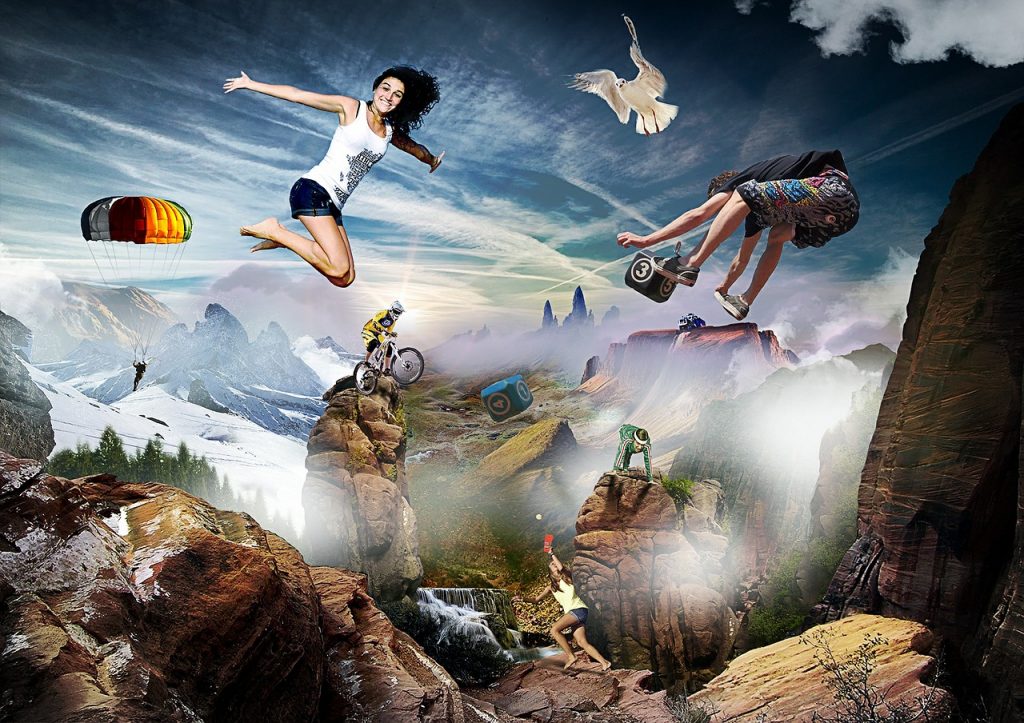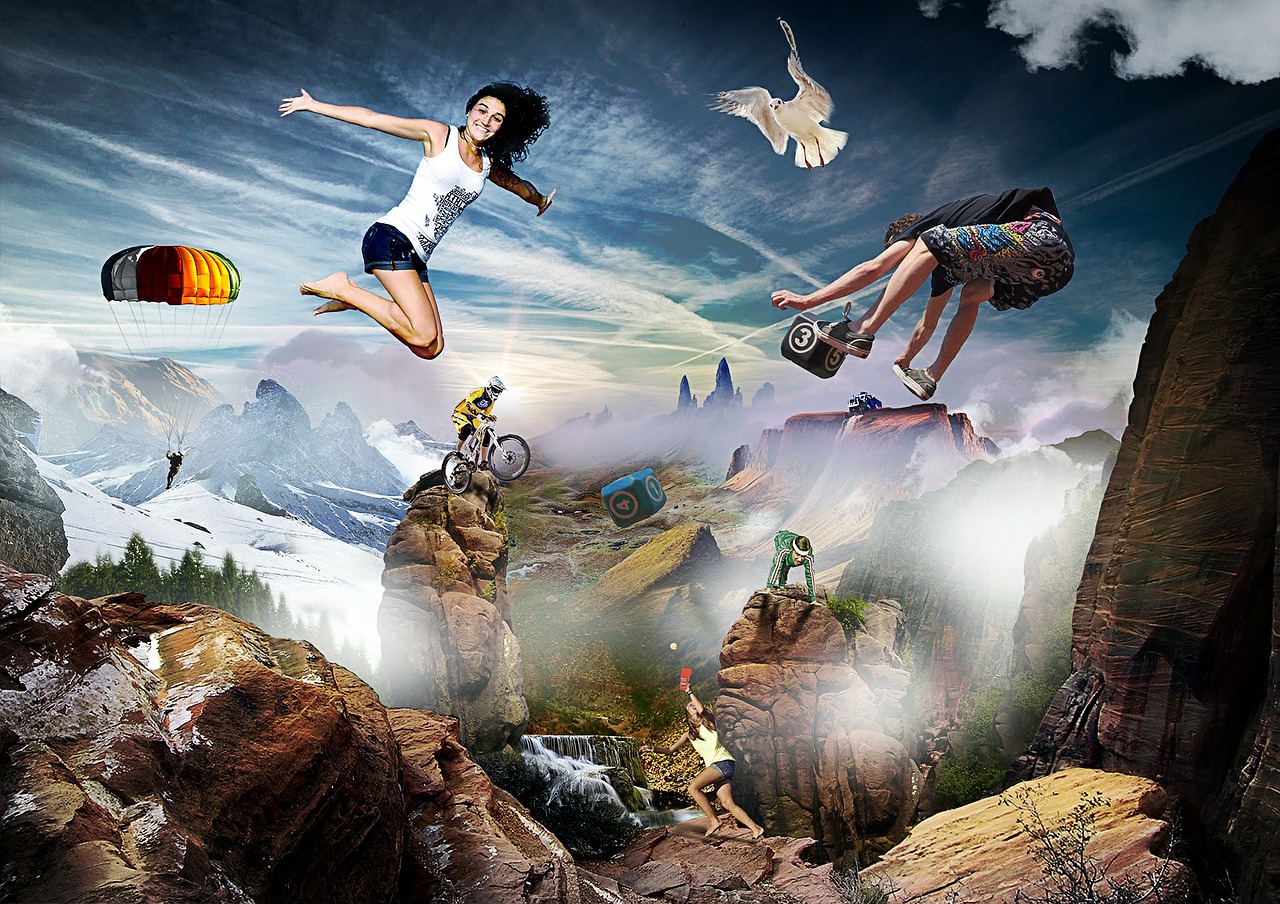Metamagazine Articles –
What if you could consider your Life as a Game?
What would be the Rules (general principals, norms & moral guidelines) and Goal of the game?
What kind of incentive and punishment are you giving yourself (You, the Player)? Will you be able to get to an estimated skill level?
What activities, interactions and accomplishments would you earn ‘points’ for?
What kind of points would you like to score?
Would you go for accumulation of Wealth (currently measured in a relative subjective form of Currency: Money) or maybe another value good like: Gold, Clean Water or Energy–units?
Also directly related: What kind of Bad (like waste and garbage) should you avoid or deal with?
On a more Psychological and Spiritual ground you could deal with- or eliminate ‘mind’-things that are taking a lot of your time, like worries or unnecessary energy-leaks (resulting in stress): Humans tend to have energy-leaks towards the past or the future. These (often recurring) thoughts about certain people or events are an indication (and opportunity of awareness) that you are not being fully present in the now. You need to accept and forgive to give closure to these (often negative) energy-absorbing thoughts. For the future it is best to be positive (or at least neutral) toward anticipated events. If you sense fear in yourself, you can accept this fear as a signal that you need to prepare or even practice for the anticipated event, like a Fire-drill. As an alternative visualization exercise: If you can accept the worst-case scenario as a possibility you will feel relieved. A generic attitude (by default) with focus on a smooth and positive outcome is best for your body’s energy-system and for your health. The stress-level can physically be measured as Heart Coherence (measuring the HRV: Heart Rhythm Variable) with a sensor attached to your finger or ear. This stress-variable can be measured with
a portable device and added to your current Life-game.
[Related Biofeedback: Heartmath emWave, Game: The Wild Divine]
The interesting (self-reflecting) factor in your Life as a Game begins when you start thinking about your passions, the things you really like to do (normally: things that give you energy), your natural skills, and your success-variables.
[Changing Rules]
The New Economy, and life within this economy has new rules. The new consumers label themselves as Fans (Apple inc.) vs Customers (Microsoft) which adds a new dimension to Brands. People tend to be loyal to their personality patterns, or put differently: “people don’t like to change their common behavior”. Brand loyalty can be measured in real life (a tendency to buy one product over the other: ceteris paribus) but in a game-setting these Brand aspects might be described in product-context terms like “Popularity” (based on current sales), or product Quality terms “component or ingredient declaration and Quality” (which is most frequently used), “Industry Standard“, “Connectivity & Usability”, “Open vs Closed Source“, and the Cradle to Cradle (C2C) “Product Lifespan & Lifecycle”. I would not be surprised if sustainability and social accountability (like ecological fair trade & treatment of employees) as a Brand value become more important. As an example: the iPhone application (Goodguide.com) scans and checks barcodes with databases revealing the context and lifecycle aspects of the product and Brand. This way you are able to score all aspects of a product (energetic, ecological, ethical, political and sustainable). For example if you want specific info about your ecological footprint you can add these values to your Life-game and make a purchase choice on a product-level.
Web 2.0 (inter-connectivity (RSS), personalized pages, communities) and Web 3.0 (mobile contextual info, meta-tags, and P2P tribes) changes the way we communicate and interact with others. You can see online companies adding interactivity to their communication with terms like dialog-marketing sending personalized mail (harvested by a contest, web-form or social networks).
Amazon’s personalized and customized recommendations based on previous orders and similarities with other customers in the data-pool are probably the best example.
Given the fact we can communicate and interact relatively easy worldwide with other people on the Internet, a personal challenge with the right social networking coordination can immediately become a collaborative project, multipliable initiative or even a tribal movement. The implications of unlimited scalability through the available technology are enormous and we can only grasp the near future. The power and possibilities of
Crowdsourcing,
Crowdfunding,
tribes,
social networks (which are now very measurable) and
mobile technology will definitely change our world-view and the way we live.
I hope we will create some real life contexts (domains / arena’s) to play with this technology in
sandboxes before all newbies and digitally impaired are broadcasting everywhere and (unintended) clogging or even destroy (by overloading) the system. Peer review (like on
Wikipedia) might offer a solution, but I seriously see a need for Computer, Media and Internet (
Communication Technology) education (
Information Literacy) in non-invasive, limited impact
controlled sandbox context.
Back to your Life-Game, some final thoughts:
What is your preferred Arena (playing field)?
What are your specific targets (within this context or arena)?
What resources will you use? (information, tools, materials, people, funding)
When have you reached your “level”?
How will you be awarded and how will you share your experience and accomplishments?
How can you document and model your accomplishments as a teaching for others?


Be the first to comment on "Life is a Game; and the rules are changing"